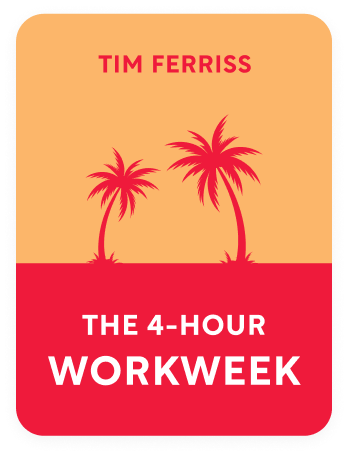

This article is an excerpt from the Shortform book guide to "The 4-Hour Workweek" by Tim Ferriss. Shortform has the world's best summaries and analyses of books you should be reading.
Like this article? Sign up for a free trial here .
What does it mean to define your dreams? Why is defining your dreams important?
In order to achieve the things you want, you first have to define your dreams. Defining your dreams can help you figure out what you actually want, and how to break out of the traditional confines of life to get it.
Keep reading to find out what it means to define your dreams.
Define Your Dreams and Choose Your Lifestyle
Most people think they want to be millionaires so they can stop doing a job they don’t like, travel, buy nice cars, spend time with the people they care about, or practice a passion or vocation. However, there isn’t a direct relationship between money and lifestyle. If you have a lot of money but don’t have any control over your time or who you spend it with, you probably won’t be happy.
For example, an investment banker might work 80-hour weeks and make a lot of money but never have any time to use it. A freelancer might work 20 hours a week for a fifth of the banker’s salary, but while she might have less money, the money she does have has more practical value. She’ll be able to use it to do whatever she wants, with whomever she wants, and whenever and wherever she wants (4Ws). You don’t need to be a millionaire to live your dreams—you only need the amount of money they require.
Paradoxically, you can increase your income by decreasing whatever it is you’re doing now. Day jobs and conventional businesses are set up to funnel everyone through the traditional lifestyle—work for three or four decades straight, and then retire for the rest of the years you have left. This is an uncomfortable, inefficient system, and Tim Ferriss challenges it in The 4-Hour Workweek. The book lays out a four-step process for starting a “muse” business that makes you enough money to escape the 40-hour workweek of the rat race. Throughout this summary, this end goal will be referred to as the 4HWW lifestyle. (Shortform note: The 4-Hour Workweek offers suggestions on how to significantly reduce your working hours. The goal doesn’t appear to be to work exactly four hours every week. Ferriss himself works more than this.)
The four steps to achieving the 4HWW lifestyle are define, eliminate, automate, liberate (DEAL). Part 1 will address step D: Define Your Dreams. The other parts will be addressed in subsequent chapters.
(Shortform note: The original edition of this book was written in 2007. This expanded and updated edition was published in 2009 and includes new content such as excerpts from the author’s blog, resource recommendations, and many case studies.)
Break the Rules
Now that you’ve learned to define your dreams, you have to achieve them. In order to do that, you have to break the rules. Why does everyone follow the conventions and “rules” of life when they push us towards an inefficient system (the rat race) and something (deferred retirement) that isn’t actually going to make us happy? If the “way it’s done” isn’t working for you, do it differently. For example, for a long time, high-jumpers jumped over the bar using a straddle technique. Dick Fosbury came up with a new technique of going backwards over the bar. Using this technique, he won the event in the 1968 Olympics. The technique was effective, and eventually, all high-jumpers started doing it. The 4HWW lifestyle may currently be uncommon, but that’s no reflection on its value or effectiveness.
Note, however, that you can take this concept too far. Being different just for the sake of being different isn’t useful. For example, only wearing clothes that are different shades of red isn’t going to achieve anything. You want to look for a new solution only when the current practice isn’t working.
Ten Rules for Breaking the Rules
There are ten rules for breaking the rules once you define your dreams:
- Treat traditional retirement as a back-up plan. Instead of working towards retirement as an end goal, work towards it only as a Plan B, in case something goes terribly wrong in your life and you become incapable of working. Prioritizing retirement is a bad idea because:
- You use up all the time that you’re most physically capable doing something you probably don’t like.
- You probably won’t be able to save enough money to create the standard of living you dream of. Retirement can last decades, and inflation takes a cut of it every year.
- If you do manage to save enough money, it was probably because you were ambitious, so when you hit retirement and its endless free time, you’ll be so bored you’ll probably end up working again.
- Alternate periods of work and rest. Working too hard too long is bad for you. Instead of spending most a large chunk of your life working and another large chunk retired, do each in moderation.
- For example, the author works for two months and then spends a month doing something he enjoys.
- Don’t worry about being “lazy.” Laziness isn’t what you think it is. Because it’s harder to measure productivity than time, people tend to use time spent as an indicator of how hard they’re working. Culture measures like this too—personal sacrifice is more rewarded than productivity. The New Rich focus on getting important things done rather than being busy, and they define laziness as being unwilling to change the status quo or search for meaning in life.
- Don’t wait for the opportune moment. There will never be one. If you dither, make pro and con lists, and wait for an ideal time, you’ll never do anything.
- Do first and apologize later. If doing something isn’t going to cause any major or irreversible damage, do it without asking for permission. It’s easier for others to say no to something before it gets started. Once it has started, they’re more reluctant to stop you.
- For example, Dave Camarillo had just started working remotely. He wanted to go to China, so he did, without telling anyone. After working from China for over a month, he finally told his boss, who okayed it.
- Focus on your strengths. It’s a better use of your time, and more fun, to use your strengths instead of working on your weaknesses. Working at something you’re good at will be many times more effective than working at something you’re bad at—even if you spend a lot of time working at a weakness, you won’t get it up to the same level as a strength.
- Recognize that excess is a problem. When you have too much of something good, it can take on negative qualities. The 4HWW lifestyle teaches you to use your free time well, not create a big chunk of free time that you won’t enjoy.
- For example, having a lot of countertop kitchen appliances can make cooking faster, but if you have too many appliances, they’ll take up so much counter space you can’t maneuver, which will ultimately slow you down.
- Remember that money’s only one part of a larger equation. In a way, money is a form of laziness and procrastination. Prioritizing money now for fun later lets you put off making changes that would help you be happier now. Money is simply a distraction—a powerful one, that affects nearly everyone—but still a distraction.
- Do some math. Money has more or less value than a dollar. There are two kinds of income, absolute and relative. Relative income is an important measurement, but keep in mind that your relative income must add up to an actual income you’re happy with.
- Absolute income is simply the dollar amount. If you make $50,000/year, then your absolute income is $50,000/year.
- Relative income takes into account time and typically looks at money on a per hour basis. Assuming a 2000-hour working year, you can make $50,000/year by making $25/hour and working 40 hours/week, or by making $100/hour and working 10 hours/week.
- Differentiate between types of stress. There are two kinds of stress, and only one’s bad. The two kinds, starting with the bad one:
- Distress is harmful and negative. It includes abuse, criticism, and pain.
- Eustress is healthy pressure that helps us grow. It includes people who push us to excel, exercise, and challenge ourselves. It allows us to make progress and it’s necessary.
Now that you can define your dreams, you’ll be able to go after your goals and pursue them strategically.

———End of Preview———
Like what you just read? Read the rest of the world's best book summary and analysis of Tim Ferriss's "The 4-Hour Workweek" at Shortform .
Here's what you'll find in our full The 4-Hour Workweek summary :
- The 4-step process to live a "retired" lifestyle now
- Find out if you're wasting the best years of your life working a 9-5
- How to create a business that makes you money without sucking up your time






